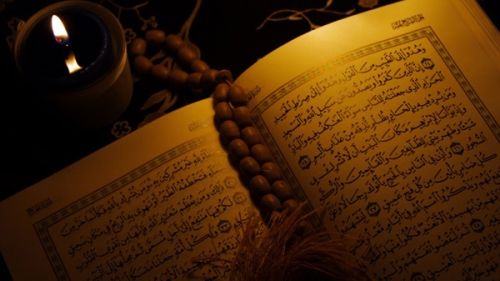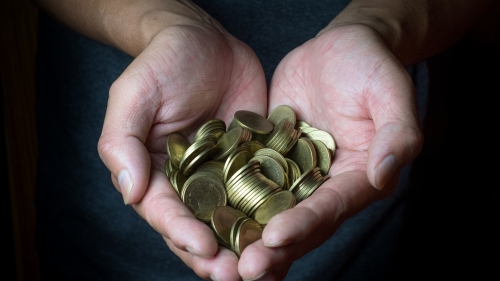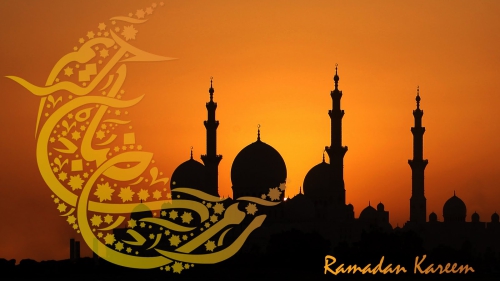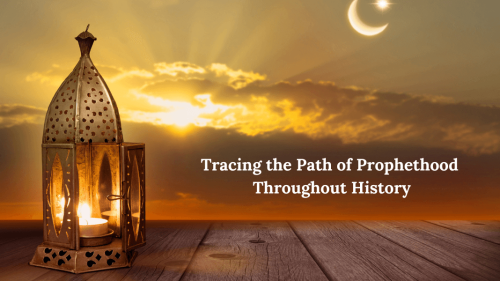This Christmas, Give the Gift of Knowledge About Islam

I love books. I have hundreds, as I suppose any aspiring academic should. I need to move out of Manhattan, because I can't afford an apartment large enough to house all these books. (Ask my wife: There aren't enough walls left and my attempt to shelve books on the ceiling has, one lawsuit later, failed.) If you ever invite me to speak at your library, mosque, Mediterranean cruise, church, temple, workshop, tropical resort or university, and you can't give me an honorarium, an Amazon.com gift certificate will find its way into my heart in a non-surgical and non-disgusting way.
And now, for most Americans, it's the season of gift-giving. Some love the season, while some protest its commercialization. I suggest making the best of it. This holiday season, why not share the gift of good books -- and all the wisdom they can provide? When misinformation on Islam, Muslims, and America's relationships to the Muslim-majority world is in oversupply, we need relevant and useful information. Conversations about Islam shape local, regional, and global affairs: to not know about Islam is to be left out of issues that deeply affect all of us.
In that holiday spirit, I'm sharing a list of great books about Islam and Muslims, in the hope that you'll share them too, as profound (and affordable) presents. What better way to create excitement on Christmas morning than by watching your loved ones unwrap presents to reveal the word "Islam," and the noticeable, measurable, visible jump in their heart rate that follows? (Ask their doctors if they're healthy enough to unwrap books about Islam. Chances are, their doctors, being Muslim, will get it.)
Or you can just gift them to yourself.
Are Civilizations Clashing?
Do Muslims hate the West? If so, why? Why do some Muslims radicalize? What cultural incompatibilities exist between Islam and the West? Building off of works like Samuel Huntington's The Clash of Civilizations and Bernard Lewis' What Went Wrong?, too many analysts presume that there is a core conflict, and that this conflict, of which Afghanistan and Iraq are manifestations, is cultural, and therefore both essential and inevitable. Don't believe the hype.
Mahmood Mamdani's Good Muslim, Bad Muslim: America, the Cold War, and the Roots of Terror explains how and why radical Islam has become a threat, and how to comprehend radicalism not as an unavoidable cultural expression, but as a political grievance translated by the cultural world it emerges from. If you're going to read one book on the "clash of civilizations," read Mamdani's.
Common Problems
Richard Bulliett's The Case for Islamo-Christian Civilization should be on every bookshelf. (Embarrassingly, it is not yet on any of mine). Bulliett, who is, like Mamdani, a Columbia Professor -- Go Lions! -- has written a fantastic book. He's not making a facile case for Muslim-Christian fusion; Bulliett's pointing out that Islam and Christianity spread across the Earth almost simultaneously, and produced similar institutions through their periods of expansion and entrenchment. An easy, breezy, bright introduction to history over the long haul, Bulliett neatly explains how Islam and the West are in fact comparable and relatable. Because Islam isn't immune to, or exempt from, history.
Who Let Shariah Through Passport Control?
You can't have a conversation these days without worrying about Shariah. The term is complicated enough to explain in a soundbite, never mind what hundreds of millions of Muslims all over the world make of it. And, of course, Oklahoma's out to fight back against Islam's conquest of Middle America, and will bury the Ten Commandments in a panic over surreptitious Islamification, Muslimization, or whatever. Everybody needs to calm down.
Start your detoxification with Dalia Mogahed and John Esposito's Who Speaks for Islam? What A Billion Muslims Really Think. It'll make you unthink everything you might think about Shariah. Next up: The best explanation of the political attraction of Shariah to many in the Muslim-majority world has to be Noah Feldman's The Fall and Rise of the Islamic State; Feldman explains how Muslim societies had been structured in the past, the political shortcomings of many Muslim-majority states today, and how Shariah has become a symbol of democratic and Islamic reform, trashing any simple opposition of Islam and modernity.
If the topic deeply interests you, you may want to dig deeper with Geneive Abdo's No God but God: Egypt and the Triumph of Islam, and Caryle Murphy's Passion for Islam: Shaping the Modern Middle East: The Egyptian Experience. While these latter two titles concentrate on Egypt, the experience of other Muslim societies is quite different. Maybe one day I'll do an Islam outside the Arab world list. For Valentine's Day.
The Forest for the Palm Trees
Of course, one of the primary reasons for ongoing tensions between the Muslim world and the West has been differing interpretations of current conflicts. Did it start with Bin Laden? Is it about the Taliban, too? Is it about radicalism more generally? How do other Middle Eastern conflicts factor in?
There have been a huge number of works about America after September 11th, but certainly one of the most enjoyable and thought-provoking is Karen Greenberg's The Least Worst Place: Guantanamo's First 100 Days. Greenberg is a fabulous writer, pointing out the larger issues at work while describing the day-to-day drama at Camp X-Ray and the decency of the men and women on the ground who pushed back against a dangerous direction in American policy.
Complement Greenberg's work with a broader look at the future of the Muslim world, going beyond the attention-stealing headlines, to the actual trends at or just below the surface -- what the overwhelming majority of Muslims are doing and experiencing. If you've got a special someone interested in business, trade, finance, or emerging markets, I'd unhesitatingly direct your attention to Vali Nasr's The Rise of Islamic Capitalism: Why the New Muslim Middle Class is the Key to Defeating Extremism. I reviewed the hardcover edition of this work (which had a different title) some months ago; Christopher Schroeder's recent op-ed may also be helpful in illuminating Nasr's general thrust.
American Muslims
Are we well-educated, suburban, often brown folks actually trying to take over your country, which is also our country? Why do some Americans believe that a tremendously religiously and ethnically diverse and also very tiny minority actually has any chance of taking over the country? Never mind that many American Muslims came here to escape the religious and political persecution our haters allege we're all about imposing.
Of course, Islam is far deeper and more profound than the events that have dominated the news over the past few decades. Don't mind those "experts on Islam," who make comments like "Islam has existed in Europe since the 1960's" (clear-up: there have been European Muslims on that continent longer than there have been Protestants in existence). Islam in the West is very often an indigenous phenomenon. I must push you towards Geneive Abdo's overview, From Mecca to Main Street: Muslim Life in America After 9/11, filled with great stories, and Mustafa Bayoumi's troubling How Does It Feel to be a Problem?: Being Young and Arab in America. (It's not about Islam per se, but does get to the heart of the conflation.)
There are voices from the inside that need to be heard. Wajahat Ali wowed audiences in New York last year with his hit play, Domestic Crusaders, now available in book form. His play takes you into a South Asian American family and the generational conflicts, cultural misunderstandings and religious tensions which shape what one Muslim family does and says at the kitchen table. How many artists can give you that intimacy? Comic book writer G. Willow Wilson traveled to Egypt, fell for Egypt (and an Egyptian); based on those experiences, she's written the beautiful memoir The Butterfly Mosque: A Young American Woman's Journey to Love and Islam. Through anecdotes, observations, and tiny moments, she can speak to expansive questions of identity, faith, and practice in ways that supposed specialists cannot communicate, not only because they can't write nearly as well, but also because they don't even try to understand. I can't wait for her next book.
Fear of a Green Planet
What does Islam have to say about the environment? Does Islam have anything positive to offer the world? How do Muslims react to the same challenges that affect all people, because Muslims are people? Ibrahim Abdul-Matin's Green Deen: What Islam Teaches About Protecting the Planet outlines the ways in which Islam encourages stewardship of the Earth, and the many means by which Muslims are living a green practice of the faith. Structured to encourage short readings, reflections, and inspire local and national activism, Abdul-Matin's work suggests the ways in which religiosity and ecological consciousness are not just compatible, but mandatory. For the flipside, you won't be disappointed by Tom Bissell's amazing tour through Uzbekistan, Chasing the Sea: Lost Among the Ghosts of Empire in Central Asia. Witty, erudite, fascinating and at times hilarious, Bissell's travelogue explores this young state as he trudges towards the disappearing Aral Sea, uncovering a social landscape ruined by Communism.
A Sound Heart
And, to end things, let us not forget that Islam is, at its heart, its beginning and in its ends, a religion. We hopefully don't need the Department of Justice to remind us of this.
To better understand the Qur'an, Islam's holy text, try Ingrid Mattson's The Story of the Qur'an: Its History and Place in Muslim Life, and then check out the following translations: Tarif Khalidi's (which is just a translation, without commentary and with minimal notes) and Abdullah Yusuf Ali's (the most popular translation among Anglophone Muslims); if you're looking for something inspirational, and easier to digest, Princeton Chaplain Sohaib Sultan's The Qur'an and Sayings of the Prophet Muhammad is worth checking out (his The Koran for Dummies is, title aside, a wonderful introductory resource as well).
To understand the Prophet Muhammad, peace be upon him, and his place in Muslim life, either read Martin Lings' tremendously ambitious, but sometimes overwhelming study, Muhammad: His Life Based on the Earliest Sources (only for the serious reader -- it's easy to get lost in the details), or go for Karen Armstrong's much slimmer and more accessible biography, Muhammad: A Prophet for Our Time. To get a good sense of the place of Islam in the world, from its emergence to the contemporary, you'll certainly love Reza Aslan's book, also titled No God but God: The Origins, Evolution, and Future of Islam. And to perceive Muslim spirituality through a more advanced text, which requires a fair amount of background knowledge, pick up Diseases of the Heart, by Hamza Yusuf, which does a good job explaining the core Islamic ideal of purification, which is central to the Islamic understanding of achieving nearness to God through a moral life.
Needless to say, I don't claim that I enjoyed all these books equally, or that I agreed with everything their authors assumed or argued; at times, I disagreed, and sometimes strongly. Occasionally I was even offended. But each of these books has something special to offer, illuminating and enlarging the discourse, changing or challenging what we think -- an alternative to the usual fare. Shouldn't we know more about this topic, considering how many times it affects our communities and speaks to our priorities as a country? And with that: Happy shopping. Do your part to spread bookish sagacity and reignite the American economy.
Source: The Huffington Post - Haroon Moghul, Executive Director, The Maydan Institute
Topics: Christmas, Heart, Islam Values: Education, Knowledge Channel: Opinion
Views: 8443
Related Suggestions





























